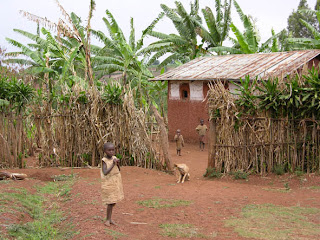This practice infuriates most bazungu in Rwanda, who will generally try to negotiate the seller down to the Rwandan price. But should we be so annoyed?
We do it aswell.
In Europe, a plane ticket for a business traveller on a intra-European flight may cost for example 800 Euros. A private but wealthy traveller who plans a private visit and researches a few cheaper offers may pay 600 Euros for the same flight. A slightly less wealthy tourist, who plans his holiday well in advance, may get the same flight for 400 Euros from the same major airline. Also, airlines offer “student discounts”, “pensioner discounts” and special offers for tour operators that could get that price down to 250 Euros.
This is price differentiation in Europe and it is found not only amongst the airlines, but also amongst other services (cinema tickets, train tickets, …) and even products (a book in a student bookshop costs less than at a gift shop in the centre of town). It is an intelligent way of getting different types of customers to pay the optimum price in order to maximise turnover.
So what about the bazungu?
In a sense, African businessmen, traders and taxi drivers have instinctively understood a mechanism that is part of every economic and business course in Europe. To get the most money out of your customers, you try to separate them into groups of rich and poor, and then charge them different prices. This is simply good business sense. It also allows businesses to charge lower prices to those people who might otherwise be too poor to buy a product or service.
Not to mention all the damage that we bazungu do to the local economy…
… because we push up local prices. This is most obvious in the rent prices in Kigali, which are on a level with Paris or London. But bazungu also increase the demand for food, imported goods, petrol and so on. If a Rwandan trader had to set the same price for everyone, the prices would rise as the expatriates move in and go shopping. This rise in prices would make the survival of poor Rwandans even harder.
So if you are ever in Africa, pay your bazungu prices with a smile and hope that you are always paying more than the locals. This is not only better for business, but also better for the poor.
